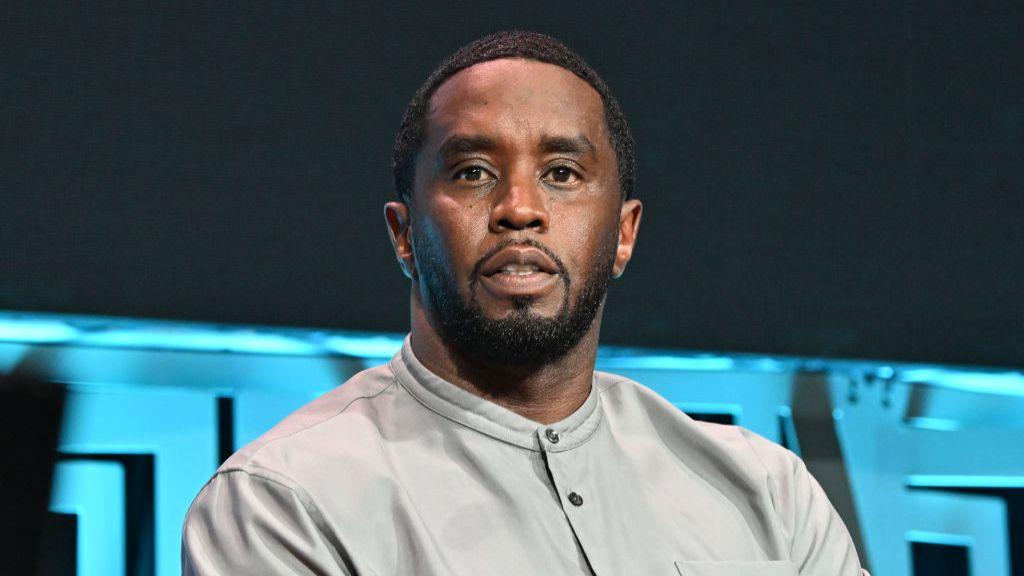Sean “Diddy” Combs has been denied bail following a jury’s conviction on charges of transportation to engage in prostitution, though he was acquitted of more severe allegations, including racketeering and sex trafficking.
Defense attorneys for the recording artist argued against detention, citing that he posed no flight risk, given that his private jet is currently being chartered in Hawaii.
However, Judge Arun Subramanian cited Combs’ history of violent behavior as the basis for his ruling, stating that the rapper must remain incarcerated until his sentencing later this year, where he could face up to 20 years in prison.
During the nearly two-month federal trial held in New York City, prosecutors argued that Combs exploited his celebrity and business empire to operate a criminal enterprise focused on sex trafficking women.
After 13 hours of deliberation, the jury acquitted Combs on three of the five most serious charges.
He will remain in federal custody at the Brooklyn detention center where he has been held since last September.
Sentencing is tentatively scheduled for October 3rd.
Combs’ attorney, Marc Agnifilo, delivered a passionate plea for his client’s release.
Agnifilo noted that Combs had proactively participated in a domestic violence perpetrator program in an attempt to reform his behavior, prior to his arrest, and further stated that there have been no instances of violence since 2018.
“I just think we should trust him,” Agnifilo argued.
Conversely, Combs’ former girlfriend, musician Casandra Ventura, submitted a letter to the court warning of the potential danger should the hip-hop mogul be released.
While Combs acknowledged incidents of domestic violence, he denied engaging in any non-consensual sexual encounters or being involved in a wider racketeering scheme.
Judge Subramanian justified the bail denial by stating that “the defense conceded violence in his personal relationship.”
The courtroom atmosphere was fraught with emotion following the jury’s announcement of the acquittal on the most serious charges of racketeering and sex trafficking.
Both sex trafficking and racketeering carry a maximum sentence of life imprisonment.
Upon hearing the verdict, Combs reportedly knelt down, burying his face in his chair, appearing to pray, and was visibly shaking.
The verdict comes a day after the jury informed the court that they had reached a decision regarding the sex trafficking and transportation for prostitution charges, but remained deadlocked on the racketeering count.
Jurors indicated they held “unpersuadable” opinions on both sides of the racketeering charge, which was deemed the most complex of all the counts against Combs.
Racketeering conspiracy, formally referred to as directing an illegal enterprise under the Racketeer Influenced and Corrupt Organizations Act (RICO), was the specific charge in question.
To secure a conviction on this charge, prosecutors needed to demonstrate that Combs utilized his network of associates to operate a criminal enterprise engaged in crimes such as sex trafficking, kidnapping, drugging, and obstruction of justice.
Defense attorneys countered that the case could not be classified as racketeering unless it was proven that members of Combs’ staff were knowingly complicit.
Over the course of the seven-week trial, prosecutors presented testimony from more than 30 witnesses, including Ms. Ventura, rapper Kid Cudi, former employees, and hotel security personnel.
The prosecution alleged that Combs relied on his employees to coerce partners into participating in so-called “freak-offs,” during which his girlfriends would engage in sexual acts with a male escort while he observed and recorded the encounters.
The government’s case heavily relied on the testimony of Ms. Ventura, who, while eight months pregnant, testified that Combs pressured her into performing sex acts and threatened to release tapes of the “freak-offs” if she disobeyed.
On Wednesday, Ms. Ventura warned that Combs would pose a danger if granted bail.
In a letter submitted to the court, her attorney, Douglas Wigdor, stated: “Ms. Ventura believes that Mr. Combs is likely to pose a danger to the victims who testified in this case, including herself, as well as to the community.”
Central to the case was a video depicting Combs beating and dragging Ms. Ventura in a Los Angeles hotel hallway in 2016 – surveillance footage that security employees testified Combs attempted to pay them to delete.
Combs’ legal team acknowledged his violent behavior towards women, but argued that his actions stemmed from drug use and jealousy, rather than evidence of a larger sex trafficking and racketeering scheme.
Combs also faces numerous civil lawsuits alleging sexual assault and violence.
The Harlem-born rapper founded Bad Boy Records in 1993, a label that represented some of the most prominent figures in hip hop, including Notorious B.I.G. and Usher.
He subsequently launched a clothing line called Sean John and various other business ventures, including fragrances, alcohol, and a media company.
Get all the latest trial updates on the BBC Sounds ‘Diddy on Trial’ podcast available wherever you get your BBC podcasts.
The 29-year-old is now detained in Tennessee after being returned to the US and is awaiting trial on human smuggling charges.
The top court will hear challenges to state laws banning transgender athletes in female sports, in a case that could have nation-wide implications.
No “high risk” music acts will be broadcast live in the future after Bob Vylan’s Glastonbury set.
Keith McIvor co-ran Optimo Espacio – one of Glasgow’s most loved club nights – for 13 years between 1997 and 2010.
Duran Duran guitarist Dom Brown is experiencing a wave of nostalgia about his childhood home town.

